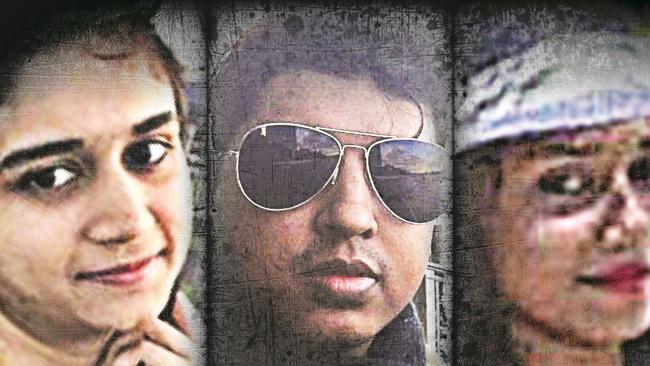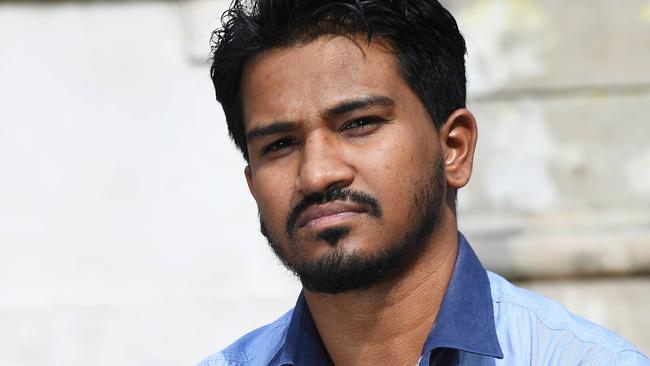WHEN Mahmudul Hasan answered his phone one Sunday in June last year, his heart leapt into his throat.
His younger brother was away at Litchfield National Park celebrating the birthday of a friend and the group was due to drive back that afternoon, but something was wrong.
The caller told him the car his brother was travelling in had crashed and two people were dead but it was not yet clear whether his brother was one of them.
With no more information to hand, Mr Mahmudul feared the worst.
“I was speechless, I was almost crying,” he says.
“For half an hour to an hour I was like ‘is my brother there or is he not?’, so all I knew was there was an incident and I knew that they were the groups and two of them were dead but I didn’t know who.
“I was just speechless mate, it’s hard to explain but I had to pull myself together and rush to the hospital to get an update — who’s coming in deceased and who’s coming in alive?”
As information continued to trickle in, Mr Mahmudul learnt that while his brother had in fact survived the crash, two others, Bangladeshi student Irfan Munna and young Filipina mother Risa Caramay, were not so lucky.
“(My brother) was one of the survivors from that trip, he went there to Litchfield with them to celebrate the birthday of Irfan Munna who passed away, so that was his birthday and that was the day he passed away,” he says.
But as hard as that day was for the loved ones of those killed, for Mr Mahmudul worse was yet to come.
As the president of the Charles Darwin University Bangladeshi Student Association, it would not be the last time he would receive such devastating news.
In April this year, Mr Mahmudul’s phone rang again, only this time the caller explained it was not two, but three young lives lost in a horror smash on the Kakadu Hwy.

The news that Saiful Islam Dinar, Sadeka Kamal Nipa and Mysha Quddus were all killed in the Easter Saturday tragedy rocked Darwin’s tight-knit Bangladeshi community to its core.
“We have a community, we have a society here, so it just goes on and on and they’re connected in just about every aspect of their lives,” Mr Mahmudul says.
“All of a sudden it’s almost (as if) there’s nothing going on, everything’s stopped, life has come to an immediate pause.”
And for the parents of those killed, eagerly awaiting their return from study thousands of kilometres away in Bangladesh, Mr Mahmudul says word of their death was almost too much to bear.
“All of a sudden they got the news that no, they’re not going to see them, or yes, they will see them but as a dead body, so it’s really hard for them to cope with that and I don’t think they will be able to ever cope with it, so it’s a massive loss,” he says.
“All three have been buried in their family’s designated graveyard and pretty much everyone is right next to their home so at least their parents can go and visit them and offer them prayer every now and then.”
But as tragic as the deaths were, Mr Mahmudul says there are lessons to be learned that could help prevent another family from suffering such grief.
After moving from Melbourne in 2011 and wanting to experience the Territory’s natural beauty, Mr Mahmudul says his first trip to Litchfield was an eye opening experience.
“I took my small hatchback car and I was driving 10km/h (along a dirt road) because I had absolutely no idea what I could do,” he says.
“I found myself in that scenario where I didn’t actually do any research beforehand, if I had I probably would have known that I could avoid that road and go a different way or I would probably take a four-wheel-drive.”
Mr Mahmudul says both fatal crashes involved rural conditions and wants new arrivals to Darwin to understand the differences between city and country driving so no one else has to pay such a terrible price for adventure.
“Once you’re in the Territory you’re going to do some sort of driving, yes Darwin-wise it’s a small place but when you think about the Territory it’s quite big and obviously to go from one place to another it’s a couple of hours drive if you want to look around and enjoy the sights,” he says.
“So there’s a bit of awareness people need to make beforehand and some preparation and always have a backup driver in the car as well, you can’t just take the ownership of ‘cool, I’m going to drive to Litchfield and come back just by myself’, it’s always better to have a backup driver so I’ll drive there and when we’re coming back I have a mate who can drive us.
“So driving skills-wise yes, whoever drives a car in Darwin can drive everywhere or whoever drives in Melbourne can drive everywhere in Australia, rules-wise it’s OK, but awareness-wise it’s a long drive and there are gravel roads involved.”
Go to towardszero.nt.gov.au for more information about the campaign.
To show your support and to join the movement use #towardszero and follow the Facebook page Towards Zero.


Add your comment to this story
To join the conversation, please log in. Don't have an account? Register
Join the conversation, you are commenting as Logout
Celebrating Alice Springs’ rich cultural diversity
Our shared cultures connect us and drive our appreciation of the many benefits diversity offers our community, our workplaces and economy, writes Marion Scrymgour.
The ultimate celebration destination these holidays
Mindil Beach Casino Resort (MBCR) have just released their festive menus for this year – with extensive dining options across the property. Here’s your first look.